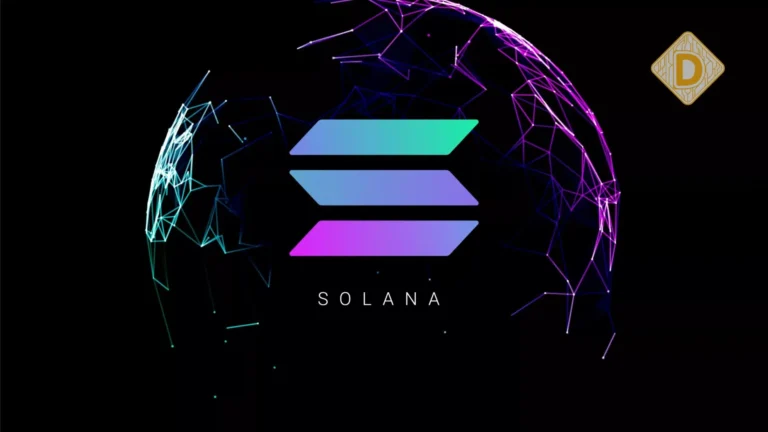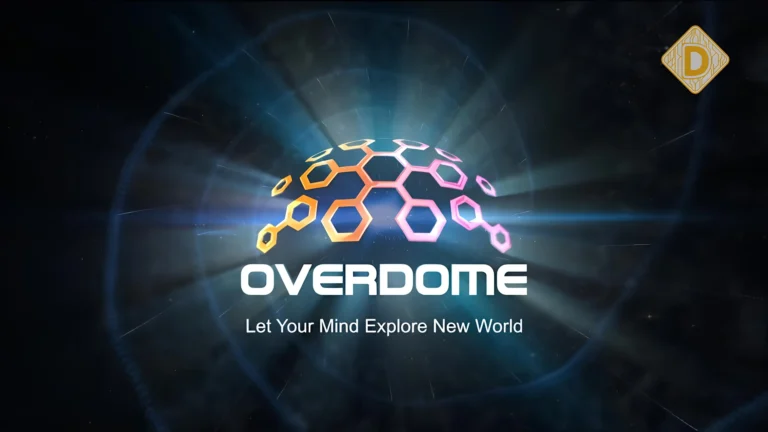Understanding overdome : Overdome is a groundbreaking concept in the world of cryptocurrencies, offering a new approach to decentralized finance. This innovative platform is designed to provide users with a secure and efficient way to transact with digital assets. By incorporating advanced technology such as blockchain and smart contracts, Overdome aims to revolutionize the way people interact with cryptocurrencies.
Key Points to Understand about Overdome:
- Decentralization: Overdome operates on a decentralized network, removing the need for intermediaries and enhancing security.
- Privacy: The platform prioritizes user privacy and anonymity through encryption and innovative privacy protocols.
- Smart Contracts: Overdome leverages smart contracts to automate transactions and ensure efficient processing.
- Scalability: Overdome addresses scalability concerns within the blockchain ecosystem, enabling faster and more cost-effective transactions.
- Community Governance: Users play an active role in shaping the future of Overdome through community-driven decision-making processes.
With its focus on security, privacy, and efficiency, Overdome is poised to transform the landscape of cryptocurrencies and decentralized finance. By embracing cutting-edge technology and user-centric design, Overdome presents a compelling vision for the future of digital assets.
The Potential of Overdome in Cryptocurrencies
- Overdome in cryptocurrencies has the potential to revolutionize the way transactions are conducted in the digital world.
- It offers a unique solution to the scalability issues that many existing cryptocurrencies face, by allowing for the processing of a large number of transactions simultaneously.
- By utilizing a cutting-edge consensus algorithm, Overdome can ensure faster transaction times and lower fees compared to traditional blockchain networks.
- The flexibility of Overdome also allows for the integration of smart contracts, enabling the automated execution of predefined actions once certain conditions are met.
- With its focus on security and privacy, Overdome aims to provide a transparent and secure platform for users to transact without the need for intermediaries.
- The potential applications of Overdome in various industries such as finance, healthcare, and supply chain management are vast, offering enhanced efficiency and security.
- As more developers and businesses adopt Overdome, the ecosystem is poised to grow exponentially, creating new opportunities for innovation and collaboration in the cryptocurrency space.
- Overall, the potential of Overdome in cryptocurrencies presents an exciting prospect for the future of decentralized finance and digital transactions.
Understanding the Technology behind Overdome
- Overdome utilizes blockchain technology to enable secure and transparent transactions.
- The decentralized nature of Overdome ensures that there is no central authority controlling the network.
- Smart contracts play a crucial role in Overdome, automating various processes and ensuring trust among users.
- Proof of Stake (PoS) consensus mechanism is employed by Overdome, offering scalability and energy efficiency.
- The encryption techniques used by Overdome ensure that user data and transactions are kept private and secure.
- Overdome’s architecture is designed to handle high transaction volumes swiftly, ensuring efficient and quick processing.
- The integration of Artificial Intelligence (AI) in Overdome enables predictive analytics and enhances user experience.
- Overdome’s user-friendly interface makes it accessible to a wide range of users, regardless of their technical expertise.
- The continuous development and updates to Overdome’s technology ensure that it remains at the forefront of innovation in the cryptocurrency space.
The Impact of Overdome on Traditional Banking Systems
The rise of Overdome and other cryptocurrencies has had a significant impact on traditional banking systems worldwide. Here are some key points to consider:
- Disintermediation: Overdome enables peer-to-peer transactions without the need for a central authority or intermediary, bypassing traditional banks. This disintermediation threatens the traditional banking model, potentially reducing their relevance.
- Lower Transaction Costs: Overdome transactions are often faster and cheaper compared to traditional banking systems. This efficiency may prompt traditional banks to reevaluate their fee structures and transaction processing methods to remain competitive.
- Global Reach: Overdome operates on a decentralized network that is not bound by geographical restrictions. Individuals worldwide can participate in Overdome transactions, challenging traditional banking systems’ dominance in cross-border payments.
- Security and Privacy: Overdome’s blockchain technology offers enhanced security and privacy features compared to traditional banking systems. The transparency and immutability of blockchain transactions provide users with a sense of security that traditional banks may struggle to match.
- Regulatory Challenges: The decentralized nature of Overdome presents regulatory challenges for governments and financial institutions. Crafting appropriate regulations to govern Overdome while balancing innovation and oversight poses a unique challenge for traditional banking systems.
- Innovation and Adaptation: To stay relevant in the face of Overdome and other cryptocurrencies, traditional banking systems must innovate and adapt their services to meet changing customer preferences. Integrating aspects of blockchain technology into their operations may be necessary to keep pace with the evolving financial landscape.
Overdome and Decentralization
In the realm of cryptocurrencies, the notion of “Overdome” has emerged as a prominent concept that underscores the importance of decentralization. Overdome essentially embodies the idea of going beyond traditional centralized structures and embracing a decentralized framework for financial transactions and operations. This shift towards decentralization is seen as a key driver in reshaping the future of cryptocurrencies and establishing a more inclusive and transparent financial system.
- To understand the significance of Overdome in the cryptocurrency space, one must recognize the fundamental shift it represents. By moving away from centralized authorities like banks and governments, Overdome proponents seek to empower individuals and communities to have greater control over their financial assets and decisions. This emphasis on decentralization aligns with the core principles of many cryptocurrencies, such as Bitcoin and Ethereum, which aim to operate independently of traditional financial institutions.
- The concept of decentralization plays a crucial role in addressing issues of trust and security in the realm of cryptocurrencies. By removing the need for intermediaries and central authorities, decentralized networks like blockchain offer enhanced security and transparency, reducing the risk of fraud and manipulation. This shift towards decentralization not only promotes financial autonomy but also fosters innovation and creativity in the development of new blockchain-based technologies and applications.
- Furthermore, the push towards decentralization through Overdome highlights the potential for cryptocurrencies to democratize access to financial services and resources. By eliminating barriers to entry and enabling peer-to-peer transactions, decentralized platforms can provide greater financial inclusion for individuals who are underserved or excluded by traditional banking systems. This democratization of finance has the potential to revolutionize the way people engage with money and investments, opening up new opportunities for economic empowerment and growth.
The Regulatory Challenges for Overdome
- Overdome faces significant regulatory challenges due to its global, decentralized nature.
- Cryptocurrencies like Overdome operate outside traditional financial systems, posing challenges for regulators worldwide.
- Regulators struggle to establish consistent policies and guidelines for cryptocurrencies, including Overdome.
- Overdome’s ability to facilitate anonymous transactions raises concerns about money laundering and terrorist financing.
- The lack of centralized control in Overdome makes it difficult for regulators to monitor and enforce compliance.
- Jurisdictional issues further complicate regulatory efforts, as Overdome transactions can span international borders.
- Regulators are exploring ways to balance innovation and consumer protection when it comes to cryptocurrencies like Overdome.
- Overcoming regulatory challenges is crucial for the widespread adoption and mainstream acceptance of Overdome in the future.
The Risks and Benefits of Overdome in Cryptocurrencies
When considering the concept of Overdome in cryptocurrencies, there are various risks and benefits that individuals and institutions should be aware of:
- Risks of Overdome in Cryptocurrencies:
- Volatility: The high volatility in the cryptocurrency market can lead to substantial losses for those investing in Overdome.
- Regulatory Uncertainty: Overdome strategies may face regulatory scrutiny, potentially leading to legal challenges.
- Security Concerns: Storing large amounts of cryptocurrency for Overdome purposes can make investors a target for cyber attacks.
- Liquidity Risk: Overdome positions may be difficult to exit quickly, especially during periods of market stress.
- Benefits of Overdome in Cryptocurrencies:
- Diversification: Overdome can provide a way to diversify a cryptocurrency portfolio and mitigate risk.
- Potential for High Returns: Successful Overdome strategies can generate significant profits in a short period.
- Hedging Against Market Volatility: Overdome can be used to hedge against the inherent volatility in the cryptocurrency market.
- Innovation and Experimentation: Overdome allows for the exploration of new investment and trading strategies in the cryptocurrency space.
As with any investment strategy, individuals should carefully weigh the risks and benefits of Overdome in cryptocurrencies before engaging in such activities. It is crucial to conduct thorough research, seek professional advice, and stay informed about the regulatory environment to make informed decisions in this rapidly evolving market.
Overdome and the Future of Financial Transactions
Overdome represents a new frontier in the realm of cryptocurrencies, offering a decentralized and secure platform for financial transactions. With its innovative technology, Overdome is poised to revolutionize the way we conduct financial exchanges in the future.
Key Points:
- Overdome’s utilization of blockchain technology ensures transparency and immutability in transactions.
- The platform’s smart contract capabilities enable automated and secure agreements between parties.
- Overdome provides a level of anonymity and privacy that traditional financial systems struggle to achieve.
- Its scalability and fast transaction speeds make Overdome an efficient option for large-scale financial operations.
- Overdome’s potential to disrupt traditional banking systems and revolutionize the financial industry is increasingly recognized by experts and enthusiasts alike.
In the coming years, Overdome is expected to play a significant role in shaping the future of financial transactions. As more individuals and businesses adopt this innovative cryptocurrency, the landscape of financial exchanges is likely to undergo a profound transformation. Overdome’s secure, efficient, and decentralized nature positions it as a frontrunner in the evolution of digital currencies and sets the stage for a new era of financial transaction possibilities.
Overdome and Security Concerns in Cryptocurrencies
Cryptocurrencies have revolutionized the way we perceive and utilize money. However, as the ecosystem evolves, the need for security measures becomes increasingly paramount. The concept of Overdome, or a decentralized dome of protection around cryptocurrency transactions, offers a promising solution for enhancing security in the digital asset space.
Overdome in Cryptocurrencies:
- Decentralization: Overdome operates on the principle of decentralization, ensuring that no single entity has control over the security measures. This distributes the responsibility and prevents a single point of failure.
- Enhanced Encryption: By leveraging advanced encryption techniques, Overdome provides an additional layer of security to cryptocurrency transactions, making it harder for malicious actors to exploit vulnerabilities.
- Tamper-Proof Transactions: Overdome aims to make transactions tamper-proof, ensuring that once a transaction is validated, it cannot be altered or reversed, adding a level of immutability to the process.
- Smart Contracts: Overdome can integrate smart contracts into its framework, automating the execution of predefined conditions and further securing transactions by eliminating the need for intermediaries.
Security Concerns:
- Cyber Attacks: Despite advancements in security, cryptocurrencies remain vulnerable to cyber attacks, including hacking, phishing, and malware. Overdome seeks to mitigate these risks through robust security protocols.
- Regulatory Challenges: The decentralized nature of cryptocurrencies poses challenges in terms of regulatory compliance. Overdome must find a balance between maintaining decentralization and adhering to regulatory requirements.
- Wallet Vulnerabilities: Cryptocurrency wallets are susceptible to security breaches, leading to the loss of funds. Overdome must address these vulnerabilities to safeguard users’ assets effectively.
As the cryptocurrency landscape continues to evolve, Overdome offers a promising solution to enhance security and protect the integrity of digital transactions. By addressing security concerns and leveraging innovative technologies, Overdome could pave the way for a more secure and efficient cryptocurrency ecosystem.





Leave a Reply